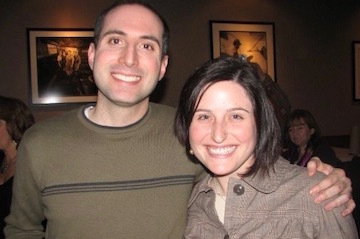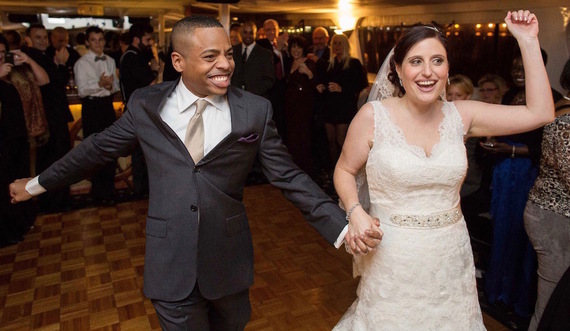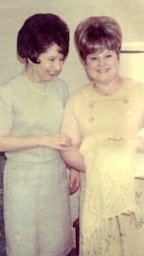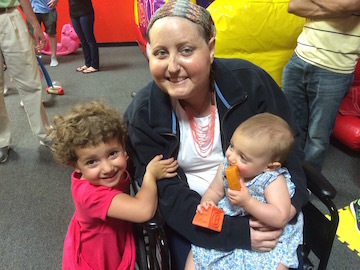If only one person meets with a genetic counselor because of this blog post, I'll know it was worth writing.
In March 2015, I tested positive for the BRCA1 gene mutation, inherited from my father. I am represented in the statistic that one out of every 40 people of Eastern European (Ashkenazi) Jewish ancestry carries a BRCA1 or BRCA2 gene mutation. This is 10 times the rate of the general population. These mutations substantially increase one's risk for breast and ovarian cancer, and slightly increase risk for other types of cancer.
Over the past year, I have had a preventive double mastectomy and a hysterectomy. I reduced my risk of getting breast cancer from as high as 87 percent, and for ovarian cancer from as high as 44 percent, to almost nothing. I know how extremely lucky I am to be writing this blog, having taken purely preventive action before getting cancer.
 The decision to do surgery was easy for me. From 2012 to 2015, I watched my husband's kind-hearted, passionate, phenomenal sister, Sheryl Lanman Nichols, fight a painful battle with breast cancer. After Sheryl's diagnosis at age 31, just weeks before her wedding, she tested positive for a BRCA mutation. The mutation was inherited from her mother, who had not had breast cancer. Sheryl had not gotten tested earlier because she did not know of any breast or ovarian cancer in her family. She then had a double mastectomy, a hysterectomy and chemo.
The decision to do surgery was easy for me. From 2012 to 2015, I watched my husband's kind-hearted, passionate, phenomenal sister, Sheryl Lanman Nichols, fight a painful battle with breast cancer. After Sheryl's diagnosis at age 31, just weeks before her wedding, she tested positive for a BRCA mutation. The mutation was inherited from her mother, who had not had breast cancer. Sheryl had not gotten tested earlier because she did not know of any breast or ovarian cancer in her family. She then had a double mastectomy, a hysterectomy and chemo.
Sheryl was told the cancer was gone and she would not die of breast cancer.
But the cancer came back with a vengeance and she passed away at age 34.
Sheryl didn't get tested for BRCA until she already had cancer. Since it spread so quickly, it was already too late for her. Her generous smile beamed brighter than almost anyone I've met in my life.
My aunt died of breast cancer. My grandmother died of breast cancer. My great-grandmother died of breast cancer. All were on my father's side, and they died at relatively young ages, between 37 and 50. My mom also had breast cancer and is now cancer-free.
The BRCA gene mutations were discovered, and testing became available, about 20 years ago. Since I had such a strong family history, I asked my OB/GYN about getting tested during my 20's. His recommendation: wait to test until I was done having children, so I could breastfeed them (instead of potentially having a double mastectomy first).
Sheryl got cancer at 31. I got tested at 36. If I had tested earlier and just started regular surveillance, that would have been better than doing nothing. However, people who test positive for a BRCA mutation and develop cancer are at a greater risk for a second or third new cancer diagnosis. I now realize I was playing Russian roulette with my life.
The Bottom Line
- Get tested sooner than you think. Experts recommend to begin screening as early as age 25. With the recommended deadline of age 40 for removal of one's ovaries for those testing positive, I didn't have much time to spare.
At a recent FORCE (Facing Our Risk of Cancer Empowered) support group I attended in DC, the room was packed with women and men from their 20's through 60's, all at different stages of the discovery process giving each other tremendous, nonjudgmental peer support. FORCE is the only national non-profit organization dedicated to improving the lives of individuals and families affected by hereditary breast, ovarian, and related cancers. It has been an invaluable support for me.
Now it's my turn to help you or someone you know by shouting: Don't think about this tomorrow! Find out your risk now, so you have choices to make. Even if you don't want to learn your own cancer risk, you owe it to your children (if you have them) to find out if you could have potentially passed a gene mutation on to them.
It's been a long road for my family, but my preventive surgeries were a far easier challenge than anyone going through cancer treatments. It's a tremendous relief to know that I have the power, to the best of my ability, to end this horrible family legacy of breast cancer.
If this message speaks to you and/or you're an Ashkenazi Jew, please call a genetic counselor to learn your cancer risk or pass this blog to someone who might find it helpful. Knowledge is power and what you do with that information is your choice. As Sheryl told me when I thought about postponing my surgery until after I started a new job: Cancer does not wait.



